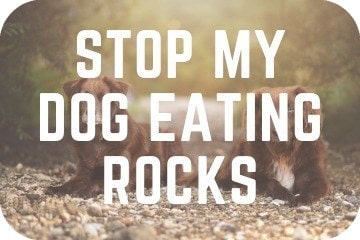
How do I stop my dog from eating rocks? It depends on why they are eating them. To prevent your dog from eating pebbles, rocks, stones, and other non-food items, you must work out why they are eating the rocks. It could be a behavioral, nutritional, or mental issue. Or a combination of the 3.
Why do dogs eat non-food items? Pica is an eating disorder that can affect both humans and animals. It is the act of eating something which is not considered food and has little to no nutritional value. Common substances for dogs include rocks, stones, sticks, grass, clothing, and furniture. The reason for a dog developing pica can vary from attention-seeking, nutrient deficiency, to anxiety, and stress.
Busy? Get Your Hands Paws On The Answers Quickly…
WHY DO DOGS EAT ROCKS?
BEHAVIORAL
Issues with behavior can occur for many reasons. Ranging from boredom to pain. The ones below are commonly displayed through eating stones, rocks, and other objects.
Attention Seeking
Every time your dog grabs a rock, do you immediately run out and try to prize it off them? Does it become a battle of wills in the yard, who will give in first?
Attention seeking is common in dogs and can be displayed in many ways. If your dog has learned that every time they go a pick up a stone or stick in the yard, they’ll be rewarded with your attention (good or bad, it usually doesn’t matter), then they will continue to repeat the action.
If this is the issue, skip to the resolution below here.
Bored
Does your dog spend a lot of time alone? Are they bored with their toys and chews?
Dogs can get bored and lonely quickly. Most breeds were bred to work and are incredibly smart and social. They like both mental and physical challenges.
If your dog does not get both mental and physical stimulation every day, then they can resort to discovering their own chews, like rocks and sticks, to exert energy.
If this is the issue, skip to the resolution below here.
It’s A Game
Do you chase your dog every time they put a stone in their mouth? Do they look sheepishly at you before darting off, leaving you trailing behind?
They’re playing; they want you to chase them. They have learned that by running away with rocks will reward them with a game of chase. This can be incredibly dangerous as your dog may end up swallowing the rock while running.
If this is the issue, skip to the resolution below here.
Poor Diet
A nutrient deficiency can cause pica. If your dog is chowing down on rocks, they may think that the nutrient they are lacking is present in rocks. Common deficiencies include iron, calcium, phosphorus, and other vitamins and minerals.
If this is the issue, skip to the resolution below here.
Hunger
Is your dog having enough to eat? Hunger can cause dogs to scavenge to find anything to eat, and rocks may happen to fill that void.
If this is the issue, skip to the resolution below here.
Both mental and physical issues can cause a dog to develop pica. Identifying what causes it can help quickly alleviate the problem.
Stress and Anxiety
Both stress and anxiety can manifest themselves in many ways in both dogs and humans. Eating non-food objects could be your dog’s way of coping it that situation.
If this is the issue, skip to the resolution below here.
Intestinal or Digestive Issue
Consuming rocks could be due to an intestinal or digestive issue, as well as worms. Worms can cause deficiencies in minerals and vitamins, which then leads to your dog consuming rocks.
If this is the issue, skip to the resolution below here.
Puppy
Puppies are said to use their mouths like a toddler would their hands. They’re into everything and need to explore their surroundings, so it’s not uncommon for them to want to munch away on rocks, stones, pebbles, sticks, and other things found in the yard.
If your dog is only chewing the rocks, then it could be for teething, it is thought that wild relatives chew stones and sticks while teething, helping to relieve the pain.
If this is the issue, skip to the resolution below here.
TOP TIP: The best way to determine why is to keep a logbook. Note down any changes in diet, appetite, energy, interaction with animals and people, and see if this can be linked to the constant need to eat stones.
HOW TO: STOP MY DOG EATING ROCKS
Clearing the yard can help in eliminating the number of rocks your dog can eat; however, it does not solve the issue. We do recommend doggy proving your garden to the best of your ability, but if your dog loves to eat rocks, they’ll find them no matter what! Plus, when you’re out on a walk, it’s impossible to keep the ground clear.
Tips For Success:
Miracles don’t happen overnight, especially if rock-eating has become a learned behavior or has been going on for some time. Set them up for success.
- Be Vigilant – If your dog only eats rocks when you’re not watching, don’t let them out alone. Yes, it can be a pain to always have your eyes on them; however, until the issue is dealt with, it could save their life.
- Keep On Leash – Don’t be afraid of keeping your dog on a leash in any areas where you cannot completely trust them not to eat rocks, even if this means in your own home. A leash will give you the chance to get to your dog quicker if you suspect they are eating a rock. If your dog only eats them on walks, don’t give them a chance to get to them. Teaching commands like ‘leave it’ (detailed below) can help during leash walking.
- Freedom – Don’t give the dog too much freedom before you can trust them, keep them in safe, enclosed areas when they are not being supervised until they can control their rock eating.
If your dog is eating rocks for attention, boredom, or because they think it’s a game. Use the following techniques to stop them:
More Exercise – Your dog could be lacking exercise; most behavioral issues are solved through increased activity. Take your dog for a longer walk, get a dog walker, introduce them to new dog friends, or take them to doggy daycare once a week. Anything you can do to stimulate your dog will help to relieve boredom.
Training – Dogs constantly picking up sticks, stones, and mud from the ground can make walks a nightmare. Spend time teaching your dog how to ‘Leave It’ and ‘Drop It.’
1. ‘Leave It’
Definition – “Do not touch that.”
It does not mean, don’t touch it now, but you can have it later. That is a ‘wait’. This is a common issue during training and can confuse your dog.
To train ‘leave it’ start with your dog in a down position (this is when your dog is most in control of their behavior, which will make it easier to train them initially). Then place a treat in front of them with your hand covering it. As soon as they lift their nose from your hand covering the treat to look at you, use the queue word ‘leave it’ reward them with a DIFFERENT treat.
Continue to up the anty, by removing your hand, having the treat closer to them, having them in a standing position, using things of higher value (e.g., real meat), drop the treat in front of them, different locations, etc.
Make sure that during training, your dog never receives the treat you are telling them to leave; this will otherwise reinforce the bad behavior.
2. ‘Drop It’
Definition – “Drop whatever you have in your mouth now.”
This command is incredibly valuable if your dog picks something up, like a rock, that could be harmful to them.
To train ‘drop it’ start playing tug with your dog with one toy. After a minute, hold the toy still, as soon as your dog releases from the toy, use your queue word ‘drop it’ and reward them by continuing the game.
Increase the difficulty by practicing this in new environments or with higher value toys or items.
Spend More Time Together – If your dog has learned that picking up a stone means attention from you, they will continue to do it. Your dog just wants to spend time with you, enroll in a training class, spend more time out walking, playing fetch, or simply enjoy a good snuggle together.
Deficiency – If you suspect your dog is nutrient deficient, make sure you check their food. Low-quality food made be filled with ingredients that are not of any value to your dog. You can try switching up their food (do so gradually to avoid an upset stomach).
If switching to a higher quality diet doesn’t help, contact your vet. They should be able to advise the right kind of food for your breed, the age of your dog, and their activity level. Alternatively, if they are deficient in something, then they will be able to recommend supplements or vitamins for your dog to take.
Hunger – Hunger should be able to be cured by feeding as per the instructions based on your dogs’ size, weight, breed, activity level. However, some breeds, like labradors, golden retrievers, beagles, basset hounds, bulldogs (to name a few), are more prone to hunger and, therefore, obesity. If your dog continues to eat rocks despite being fed the correct amount of food, contact your vet or consider if one of the other stimuli could be creating the issue.
Stress and Anxiety – Identifying the cause of stress and anxiety will help you to prevent it. Does your dog retreat to the backyard and begin their eating habit when you have new guests over? Does it happen right before you’re about to leave for work?
Exercise: Additional exercise in the form of walking, running, or swimming can typically help put anxious dogs at ease.
Treat Toys: KONGs and lick mats can be great at providing stress relief; they require licking, which can reduce their stress levels as well as provide mental stimulation to tire your dog out. Check out our posts on Kong Recipes and How To Make A Snuffle Mat, both of which are great as a mental workout which aid in relieving anxiety.
Routine: An organized routine is great for dogs. It establishes when they will be fed, exercised, and go potty. It helps them to sleep more soundly and be more settled in day-to-day life. However, ensure it is not too regimented and has some flexibility. Having some flexibility will help your dog to adjust if any significant change happens. If this is not the case, then they can become more anxious and stressed.
Intestinal or Digestive Issue – If you suspect there is a medical issue causing your dog to eat stones, contact your vet immediately.
Puppies – The cute and curious puppies are into everything. Don’t be afraid to limit your puppy’s access to the yard before you can trust them. Keep them on a leash and under close supervision at all times.
Start training commands like ‘leave it’ so that the problem does not escalate further.
If your puppy is chewing and not swallowing rocks, they made need better chew toys. Our puppies love bleached bones, antlers, frozen carrots, frozen kongs, and Nylabones. We also restrict their access and rotate the chew regularly to avoid boredom. It makes the same chew exciting again.
If you have any concerns about your dog eating rocks, or suspect your dog has eaten a rock, contact your veterinarian immediately. The consumption of rocks can be fatal.
IS IT SAFE FOR DOGS TO CHEW ON ROCKS?
No, it can pose many health problems. There have been many cases of dogs needing serious surgery after consuming rocks. Rocks can also prove fatal if gone unnoticed as they can cause internal blockages.
Blockage – The most serious health concern is that rocks can get stuck. Rocks can easily get lodged in their throat, disabling their ability to breathe, which can be fatal.
Damage Teeth – Chewing on rocks can break teeth.
Cut Gums – The sharp edges can easily cut the gums, tongue, and inside of the mouth.
FAQS
Why does my dog eat poop?
The act of eating feces is called coprophagia. Despite it being utterly revolting to humans, it is common in animals, especially puppies. There could be many reasons for this, including those above. Dams also lick their puppies poop to keep them and the area clean, and this is perfectly natural in the dog world.
It could simply be because it tastes good, cow and horse poop is made up majorly of grass, so this can be appealing to dogs.
If your dog is eating a poor quality diet and then eating their own poop, this usually means the food is not being correctly digested, and they see it as another meal. Contact your vet, or swap to higher quality food to try and prevent this.
How long does it take for a dog to pass rocks?
Most food is eradicated within 24 hours. However, some objects, such as rocks, can take a lot longer to pass through. Large, indigestible objects can cause a blockage. This can be deadly. If you are worried, make sure to consult a vet.
Do puppies outgrow pica?
Sometimes, however, I would never guarantee the issue will disappear once they grow up. Start training early. Establish the rules, teach your puppy what is and isn’t acceptable. If you suspect it could be triggered by something medical or nutritional, contact a nutritionist or veterinarian.
SaveWhy Do Dogs Eat Rocks? – Behavioral – Nutritional – Medical – Age How To: Stop My Dog Eating Rocks Is It Safe For Dogs To Chew On Rocks? PicaPublished byWild Barkers
Looking for more pawsome posts? Check these out…
Do Dogs Get Hiccups?
Which One Is The Runt?
How To Make A Dog Like You
How Long Does It Take For Dogs To Have Puppies?
How Many Nippes Do Dogs Have?
Disclaimer: Each dog is different, and every circumstance is different. All efforts have been made to provide accurate information. However, it is not provided by a qualified Veterinarian, Veterinarian Surgeon, or Behaviorist. The information provided is purely educational. The information should not be used as an alternative or substitute for medical care. If you have any health or medical concerns, contact a qualified Veterinary Surgeon or Veterinarian immediately.
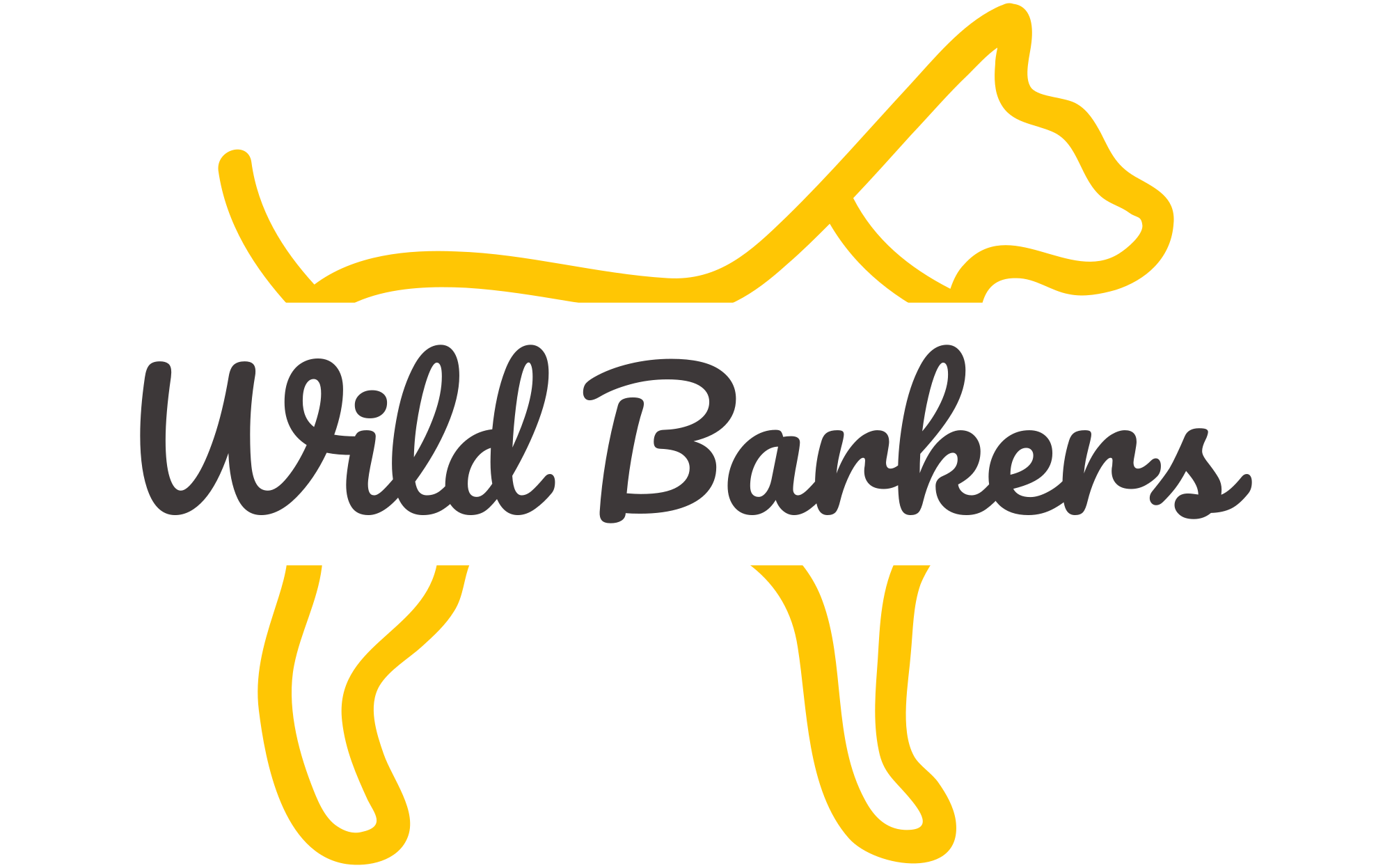

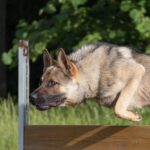




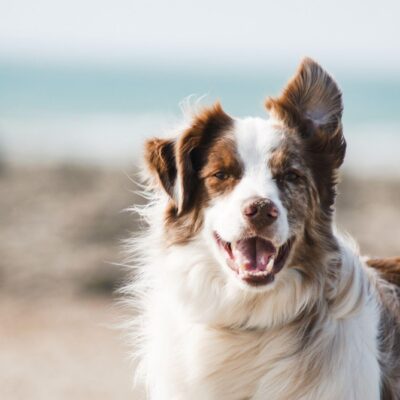
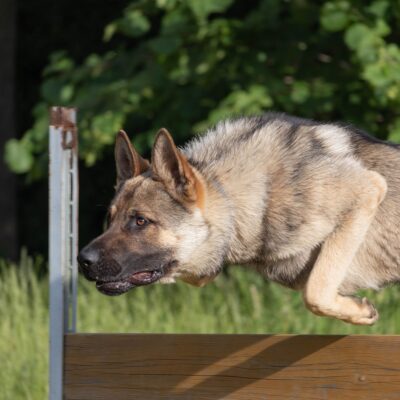
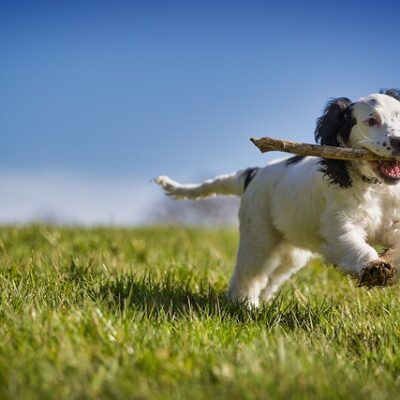
No Comment! Be the first one.